October 3, 2025
Contributor: Supriyono | Photo: Virda Lalitya Umam
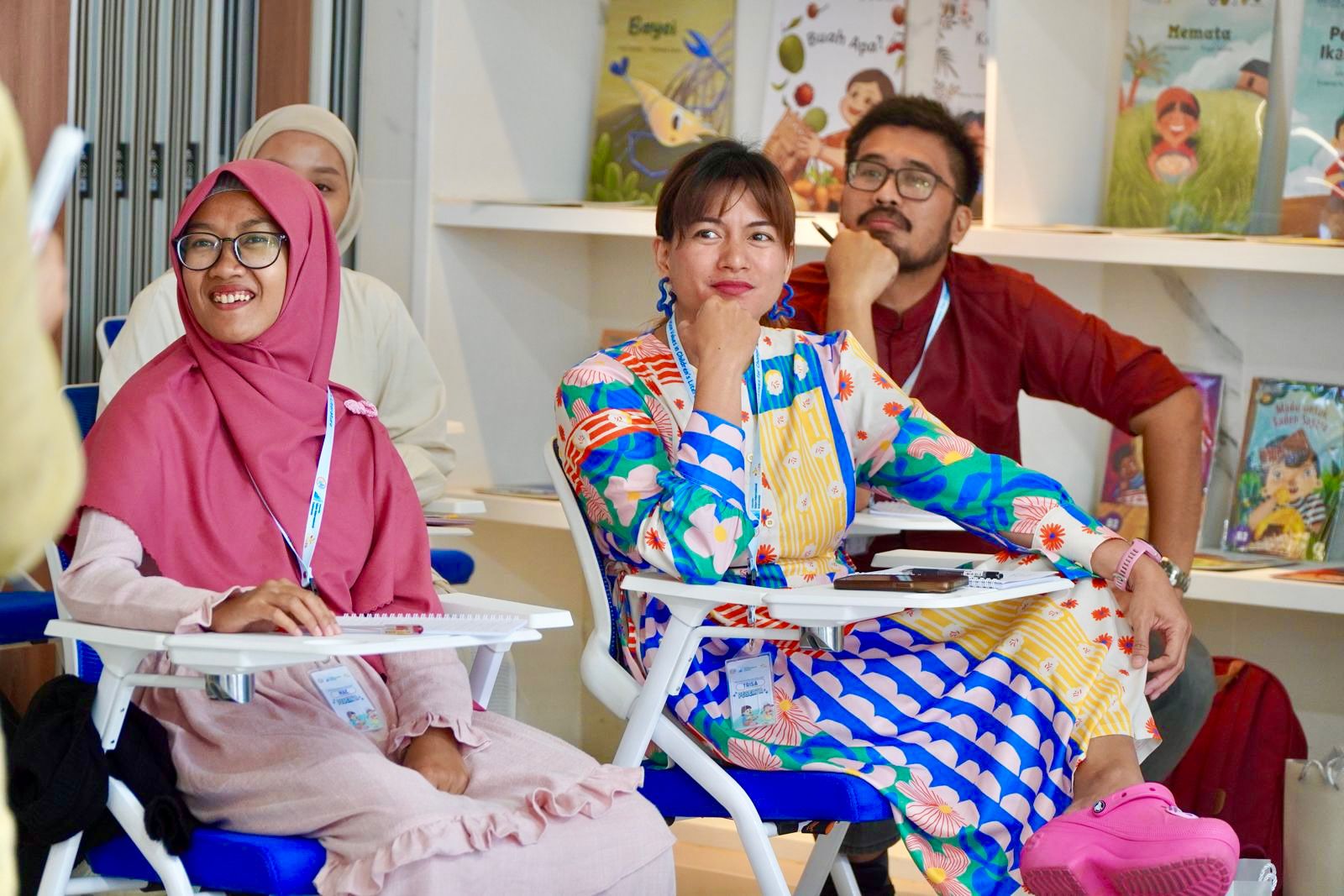
Indonesia is often noted for its low reading interest. A 2023 survey by Lembaga Survei Indonesia (LSI) found that only about 22.5% of Indonesians read at least one book in a year. Meanwhile, a 2016 study by Central Connecticut State University ranked Indonesia 60th out of 61 countries in terms of interest in reading, highlighting very low levels of reading engagement.
The intriguing question is: ‘how to improve Indonesia’s reading culture?’ We here at Universitas Islam Internasional Indonesia (UIII) believe that one of the ways to solve the issue is by building reading habits from an early age—starting at home with parents.
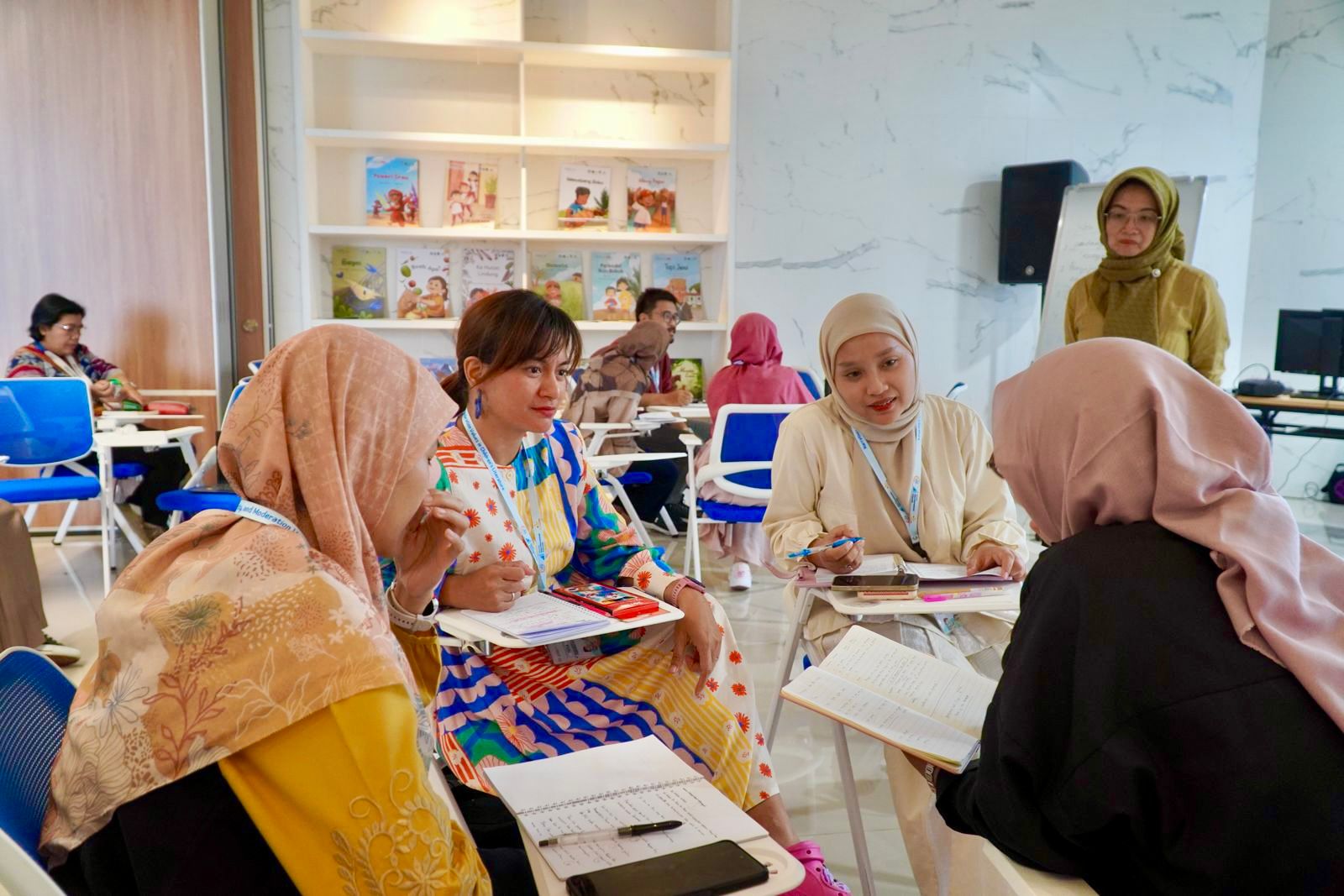 The UIII’s Faculty of Education has successfully held a community-based workshop titled “Narratives for Change: A Community Writing Initiative with Parents to Promote Tolerance, Diversity, and Moderate Values in Children’s Literature.” The program, conducted in collaboration with the Litara Foundation, was part of UIII’s Community Engagement Program supported by the UIII Community Engagement Grant.
The UIII’s Faculty of Education has successfully held a community-based workshop titled “Narratives for Change: A Community Writing Initiative with Parents to Promote Tolerance, Diversity, and Moderate Values in Children’s Literature.” The program, conducted in collaboration with the Litara Foundation, was part of UIII’s Community Engagement Program supported by the UIII Community Engagement Grant.
From 72 applicants across Jakarta, Bogor, Depok, Tangerang, and Bekasi, ten parents were selected to participate. Over several sessions—on-site at the Jusuf Kalla Library (26–27 September and 18 October 2025) and online through virtual mentorship (3 and 10 October 2025)—participants received hands-on training in creative writing, illustration, and storytelling.
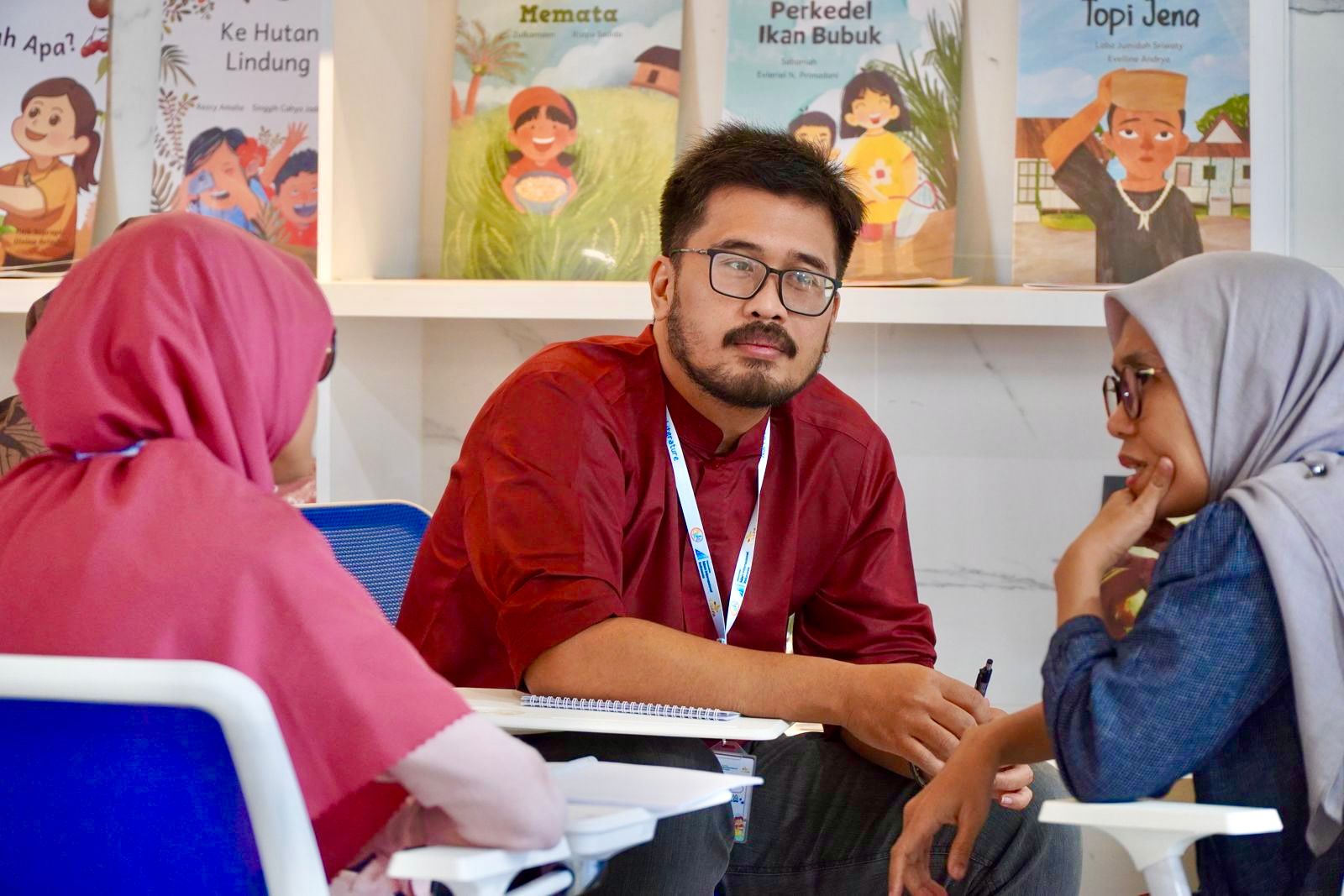 The workshop aimed to empower parents as storytellers and agents of social change by equipping them with the skills to create children’s literature that promotes tolerance, diversity, and Islamic moderation (wasatiyyah).
The workshop aimed to empower parents as storytellers and agents of social change by equipping them with the skills to create children’s literature that promotes tolerance, diversity, and Islamic moderation (wasatiyyah).
Program lead Assoc. Prof. Tati D. Wardi, lecturer at UIII Faculty of Education, guided the overall initiative. She was joined by Dr. Sofie Dewayani, co-founder of Litara Foundation, who facilitated writing and story development sessions; Dewi Tri K., a children’s book illustrator, who led the illustration workshop; and Iin Afriyanti, an UIII graduate and literacy practitioner, who introduced read-aloud techniques.
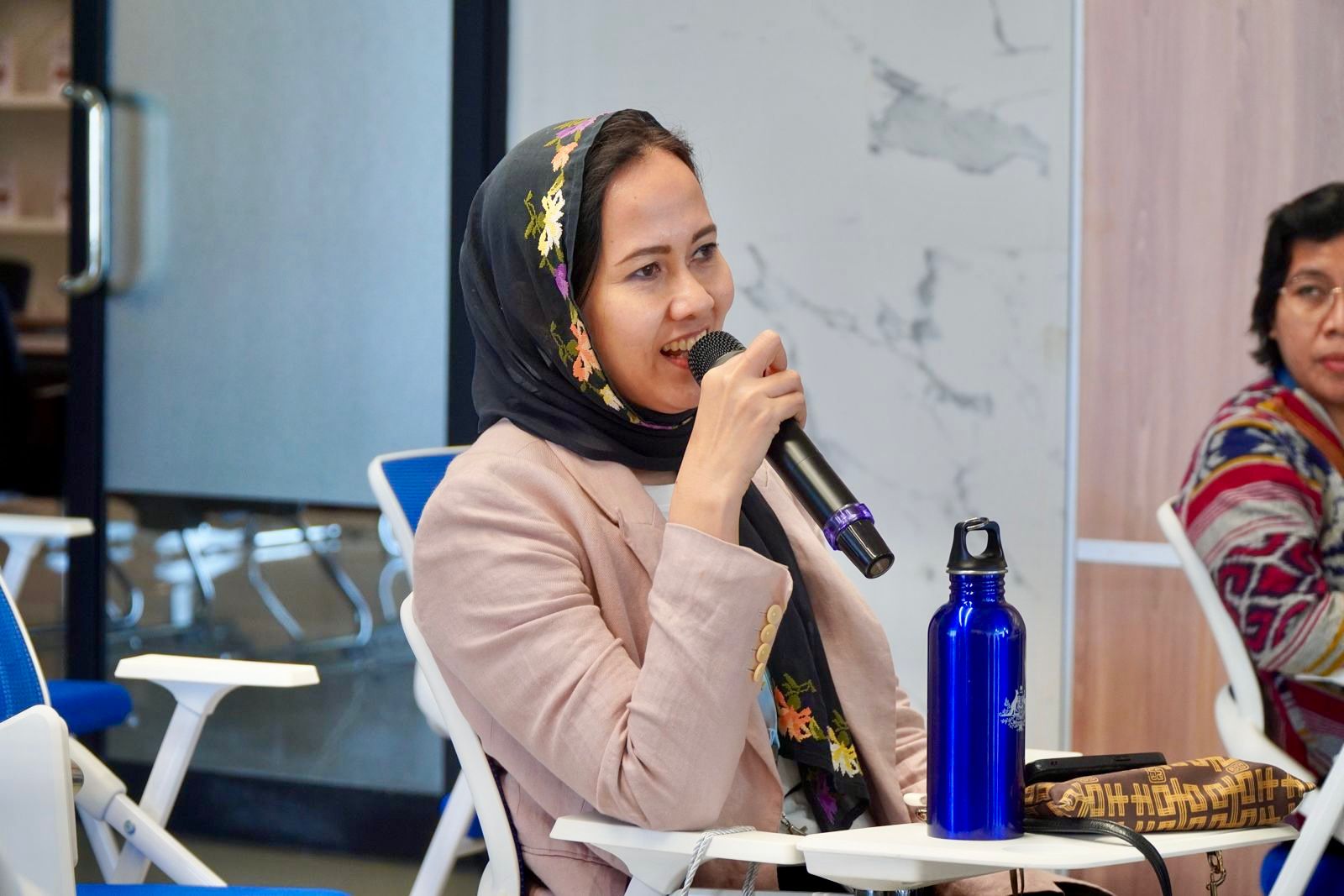 At the end of the program, each participant produced an original picture book manuscript complete with illustrations. Selected works are planned to be considered for future publication under UIII Press. More importantly, parents left the workshop with sustainable skills to support literacy development within their families and communities.
At the end of the program, each participant produced an original picture book manuscript complete with illustrations. Selected works are planned to be considered for future publication under UIII Press. More importantly, parents left the workshop with sustainable skills to support literacy development within their families and communities.
The program was also supported by Faculty of Education students who served as the organizing committee: Lakhaula Sahrotul Aulia, Ajeng Satiti Ayuningtyas Okta Ferdiana, and Agus Suprapto. Their involvement ensured the workshop ran smoothly while also providing them with valuable experience in community engagement.
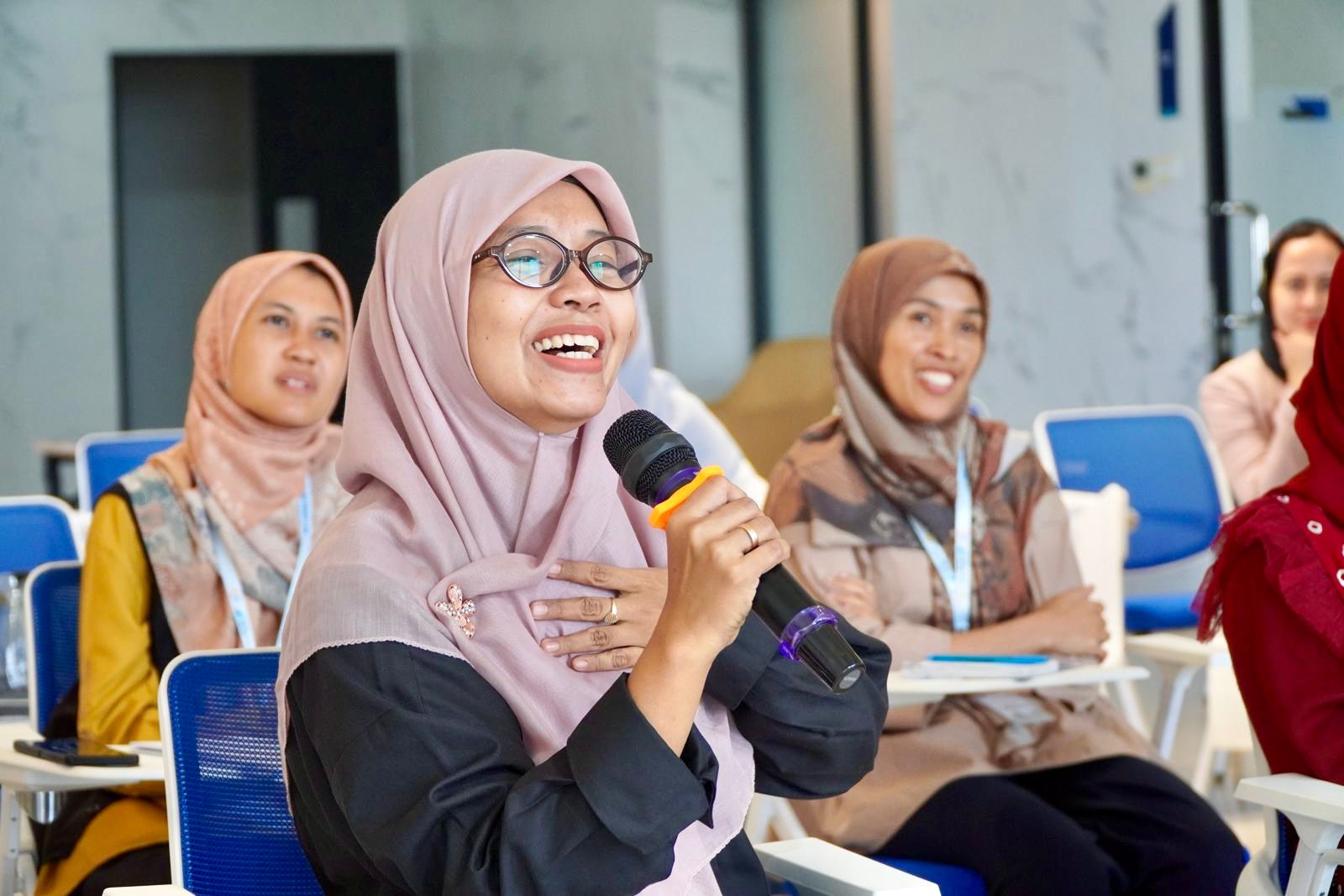 By nurturing parents as storytellers, the Faculty of Education at UIII not only plants the seeds of a stronger reading culture but also fosters a generation that grows up with values of tolerance, diversity, and moderation. This initiative shows that improving Indonesia’s literacy is not merely about increasing statistics, but about transforming homes into spaces where stories become tools for shaping character and building a more inclusive future.
By nurturing parents as storytellers, the Faculty of Education at UIII not only plants the seeds of a stronger reading culture but also fosters a generation that grows up with values of tolerance, diversity, and moderation. This initiative shows that improving Indonesia’s literacy is not merely about increasing statistics, but about transforming homes into spaces where stories become tools for shaping character and building a more inclusive future.
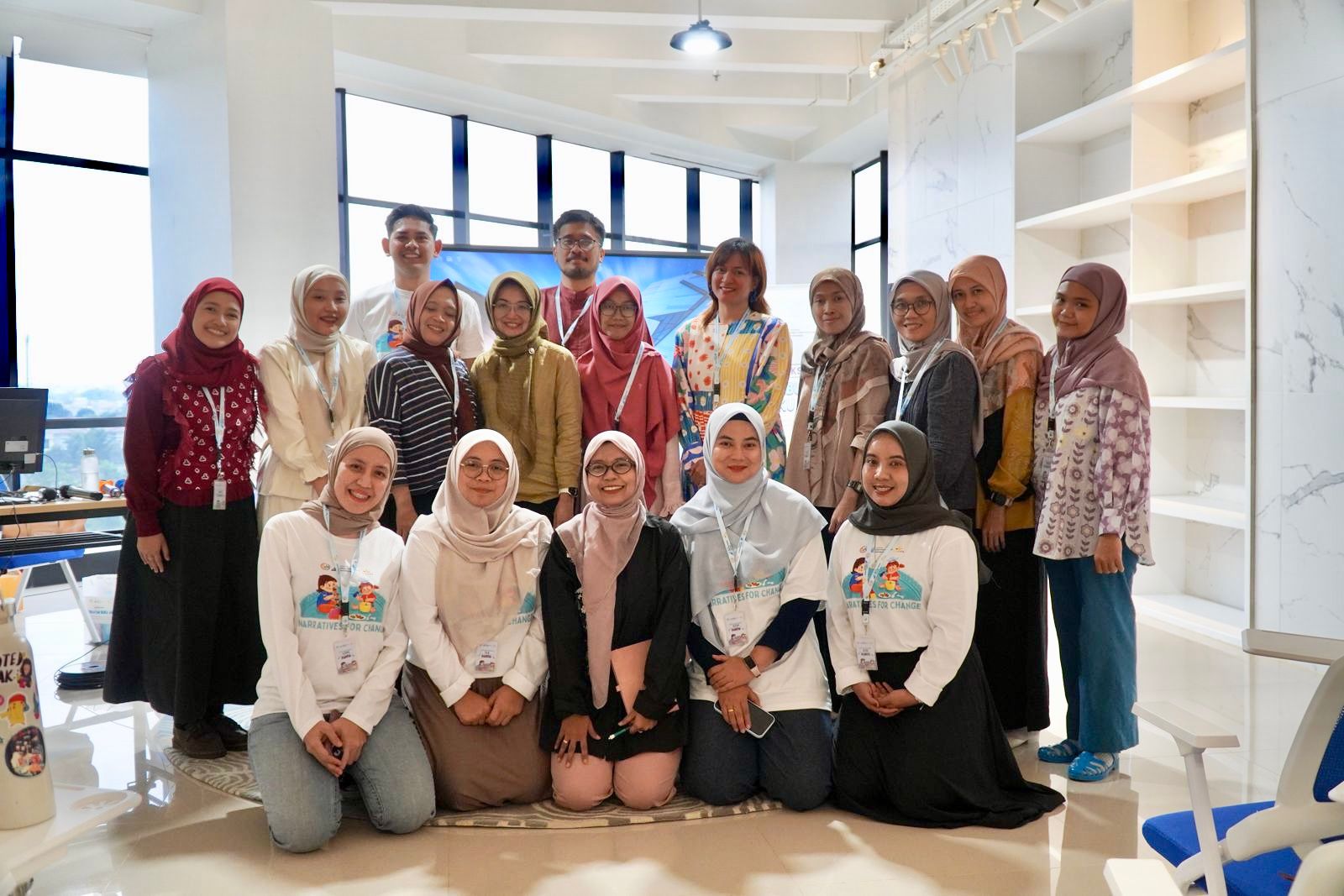
Universitas Islam Internasional Indonesia